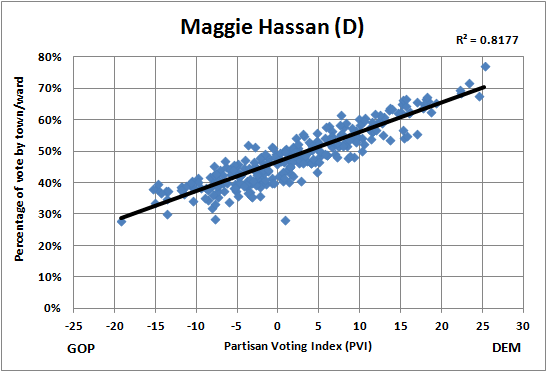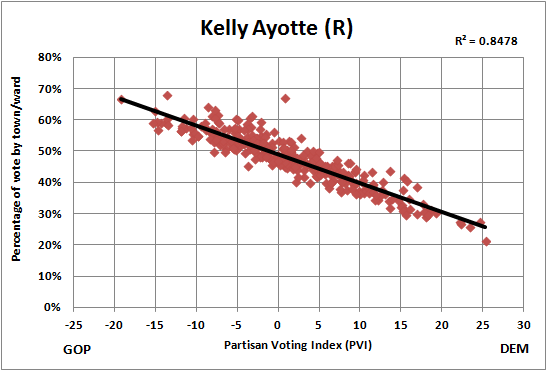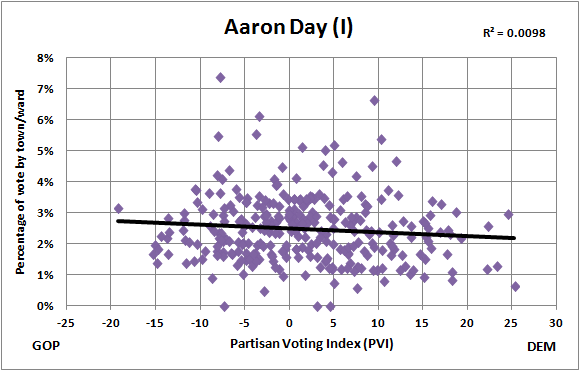Did independent Aaron Day single-handedly derail Sen. Kelly Ayotte’s reelection bid?
Independent candidate Aaron Day, who received over 17,000 votes in his race for the U.S. Senate, claims his campaign led to Sen. Kelly Ayotte’s narrow defeat. “I guarantee it did and I did it deliberately to knock her out…” he told Portsmouth Herald reporter Jeff McMenemy. “And I don’t regret it.”
Day’s feud with Ayotte dates back to 2014 when he denounced Ayotte as a “miscreant” for opposing former state House Speaker Bill O’Brien in his bid to retake the House Speakership.
Late last year, the one-time chair of the Free State Project and the Republican Liberty Caucus of New Hampshire raised the possibility of challenging Ayotte with a third-party campaign after blaming her for the legislature’s plan to reauthorize Medicaid expansion.
“Republicans were set to return a conservative, who opposed Medicaid expansion, to the Speaker’s chair until Ayotte interfered,” Day told Breitbart News. “She and the GOP establishment think Medicaid expansion will help them politically. They should understand that such an action will doom them politically.”
In June of this year, Day officially announced his independent campaign for the U.S. Senate. When the votes had been counted, Ayotte lost to Democratic Gov. Maggie Hassan by just 1017 votes. Day pulled in over 17,000 votes.
Did the majority of Day’s votes come from disaffected Republicans who might have otherwise voted for Ayotte, as Day claims? We compiled the voting data from the Secretary of State’s office to look for clues.
We analyzed the Senate vote by town, comparing the percentage of vote each candidate received with the partisan leanings of each town (measured by our Partisan Voting Index, which is based on the presidential vote in 2008 and 2012).
As you might expect, we found a strong correlation between the previous partisan voting results and this year’s vote for the two major party candidates. Kelly Ayotte’s share of the vote in each town tracked closely with the town’s Republican vote in the last two presidential elections. Maggie Hassan’s vote followed previous Democratic voting patterns.
If voters who cast their ballots for Day were disaffected Republicans expressing opposition to Ayotte, we thought we would see a similar pattern in Day’s results, with voters in Republican-leaning towns voting for Day in larger numbers than in Democratic-leaning towns. This was not the case. Our analysis found no correlation between the percentage of the vote Day received and the town’s partisan leanings.
For example, Day received 3.1 percent of the vote in New Ipswich. With a PVI of R+19, it is one of the most Republican towns in the state. Kelly Ayotte received 67 percent of the vote in New Ipswich. In Democratic stronghold Keene Ward 1, which has a PVI of D+25, Day received a similar share of the vote, 3.0 percent, though Ayotte received only 27 percent.
Similarly, Dover Ward 3 and Manchester Ward 11 are Democratic-leaning districts, with PVIs of D+3 and D+4 respectively. Hassan carried each ward by similar margins (53 and 55 percent respectively). Day received just 1.6 percent of the vote in the Dover ward but nearly three times that, 4.5 percent, in the Manchester ward.
While this analysis finds there is no relationship between Day’s share of the vote and each district’s partisan leanings, it does not definitively rule out Day’s claim that a majority of the individuals voting for him did so to punish Ayotte.
As UNH political scientist Dante Scala told the Portsmouth Herald, “It’s always tricky with third-party candidates to know exactly where they’re pulling votes from. Were these voters discontented Trump voters who were looking for a place to put their votes, maybe?”






